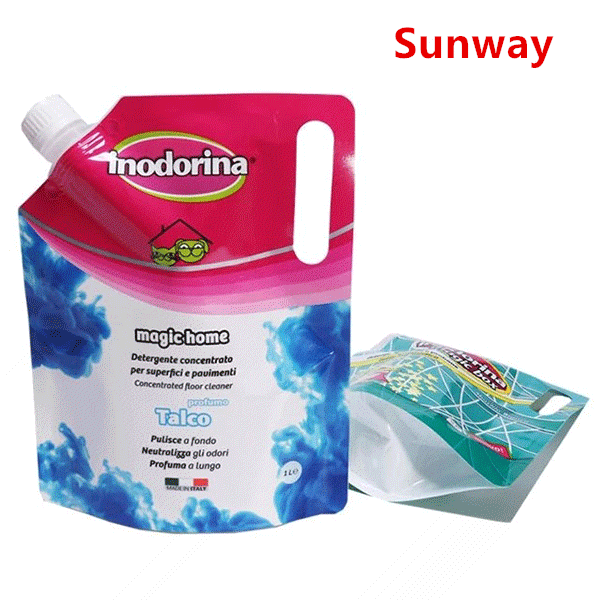Located in Vancouver, Canada, Aspect Biosystems is an award-winning biotech startup specializing in 3D bioprinting and human tissue engineering. The company produces a 3D printer that can produce fully biofunctional human tissue through 3D printing and can be used in hazardous or experimental drug testing, ultimately creating a portable bioprinter. Aspect Biosystems was created by a group of researchers at the University of British Columbia in Canada, and the start-up funding is the school's mentoring organization entrepreneurship@UBC. Its unique bio-printing technology is to put live cell material into a liquefied hydrogel, then inject it into a 3D printer and squeeze it into a specific shape layer by layer. The living organism structure produced will be placed for incubation and cultivation so that it can begin to function and create a living tissue with biological functions. In recent years, the need for alternative methods of drug testing has become increasingly urgent in order to protect animals from further harm. Moreover, animal testing can produce inconsistent or false positive responses to many diseases and conditions, making it impossible to simulate in human trials. Drug testing using bioprinted human tissue can eliminate the inherent unreliability of animal testing and save on drug development costs. The use of bioprinted human tissue to test drugs will greatly reduce or even eliminate the need for animal testing. Animal models that may be effective in animal testing often fail to function properly in human models, wasting valuable research time and money; and with bioprinted human tissue, people will no longer have to spend time and money on extended trials. In addition, it can find treatments that work well for human physiology; in the past, these methods were likely to be eliminated at the initial stage because of poor performance in animal testing. But Aspect Biosystems' ambitions are far more than just drug testing; they have more ambitious plans for their technology. “Our business strategy is to start from a low level, and the drug development market is definitely our best and most important strategic opportunity in the short term. In the future, personalized medicine will be the vast market that people need to develop; in the longer term "We have also opened a new door to implantable organ structures - possibly partial, not complete organs," Konrad Walus, co-founder of Aspect Biosystems, said in a recent interview with The Vancouver Sun. "If all goes well in the future, people can usher in an era of artificially making alternative organs." The technique may also have other applications that utilize individual cell material of a particular patient to create a 3D printed biomass that is genetically compatible with the patient. This will allow people to screen out drugs that have adverse reactions in their patients, or to test a variety of available treatments to find a drug and method that works best for the particular patient and has the least damage. For example, for cancer patients, many treatments are often as deadly as the disease itself. With this technology, they can replicate the patient's tumor cells so that doctors and researchers can find the least risk for the patient. Treatment of adverse reactions. These are just the beginnings of bioprinting in the medical industry. As the technology continues to be superb, all the limitations will no longer exist. Starting with the 3D printed test material, the next is the bio-printed organ, and then there will be custom organs. If the patient's heart function is weak, you can get a healthy model through 3D printing; for plastic lovers, you can also make a new nose through bioprinting instead of spending time reshaping your own facial features; Increasingly today, many people are suffering from lung discomfort caused by pollution, and bio-printed lungs will help them and ease their breathing difficulties. For us now, it may sound like science fiction; but twenty years ago, people could not imagine using titanium to make rocket engines under 3D printing technology , and the rockets with such engines have recently Just launched - this is the future of 3D bioprinting, this is the future of medical science. In just a few years, its progress has been so amazing, and its era will surely be much faster than most people imagine.
Liquids and beverages are notoriously tricky to package. These products require packaging that can be successfully filled, stored, transported, displayed, purchased, used, and disposed of, all while retaining the product`s quality. Spouted stand up pouches for liquid meet all of these criteria. Spouted pouches unique design allows for flexible filling, either directly through the spout or through a void in the film that is later sealed. These flexible pouches contain liquid products safely, and stand up easily on store shelves for more effective, efficient display. Best of all, when done properly, spouted stand up pouches are one of the lowest cost options for liquid and beverage packaging. Sunway can give you the perfect solutions of liquid packaging , please contact us if you need .
Liquid Packaging Bag,Custom Liquid Bag,Liquid Plastic Packaging Bag,Ziplock Liquid Packaging Bags Shenzhen Sunway Packaging Material Co., Ltd , https://www.sunwaypacks.com


